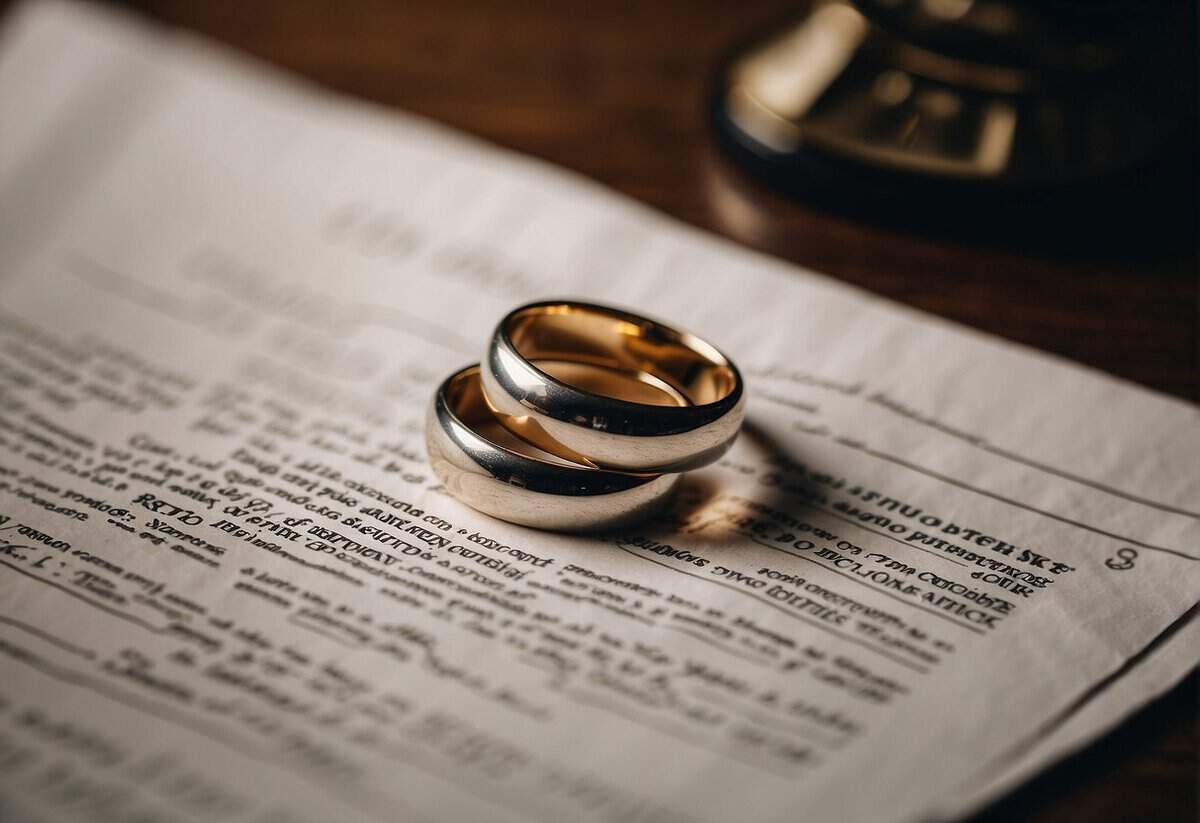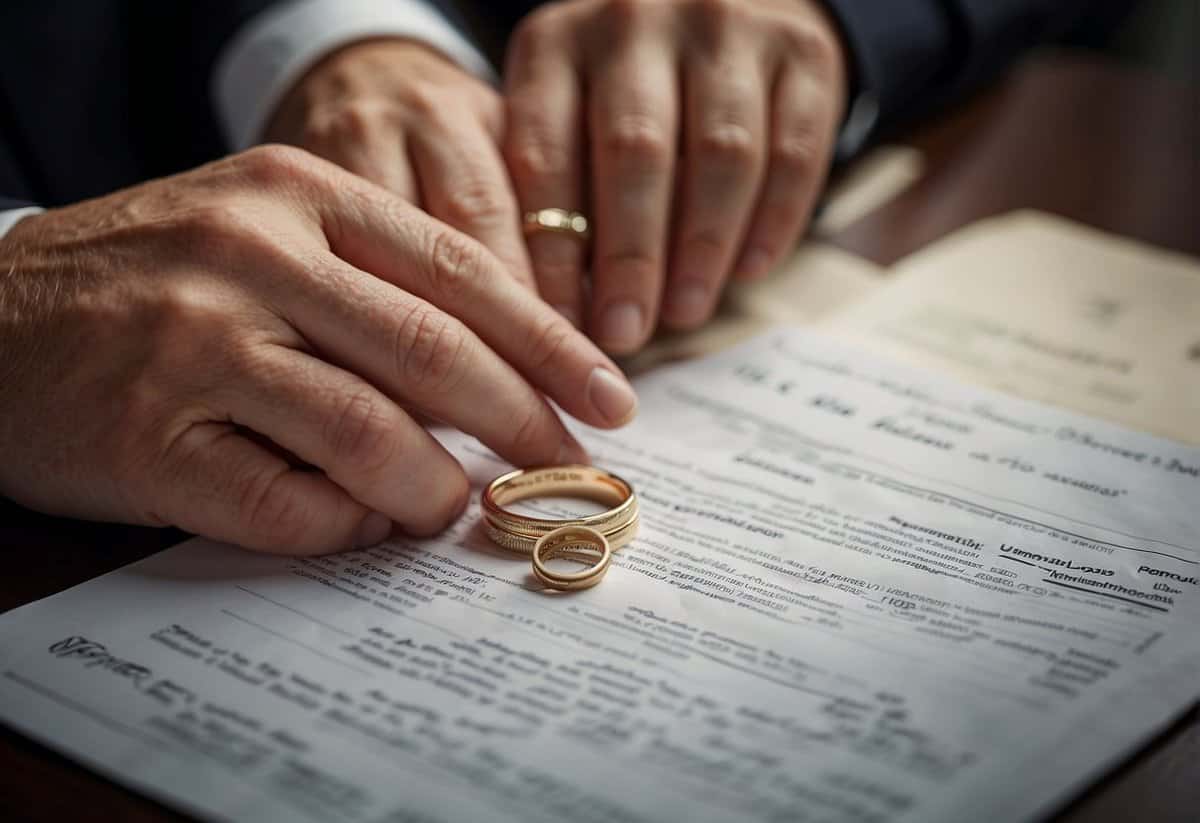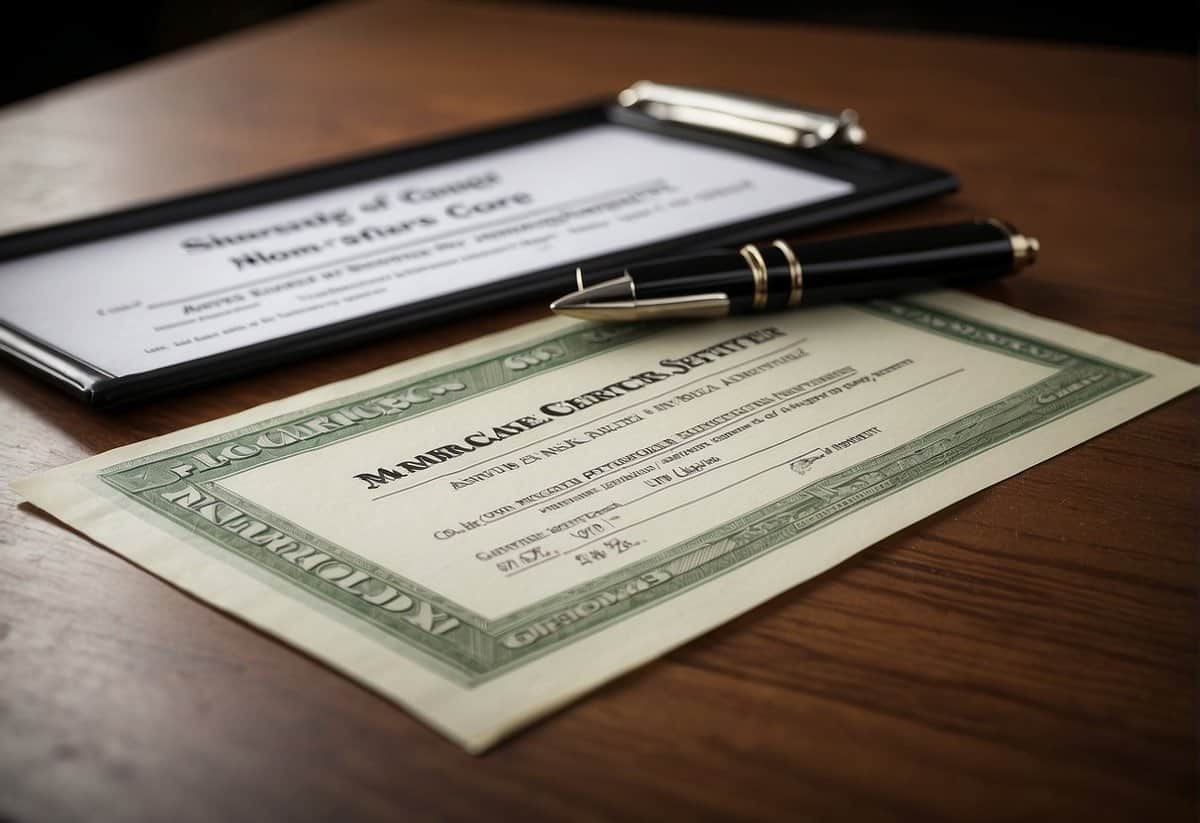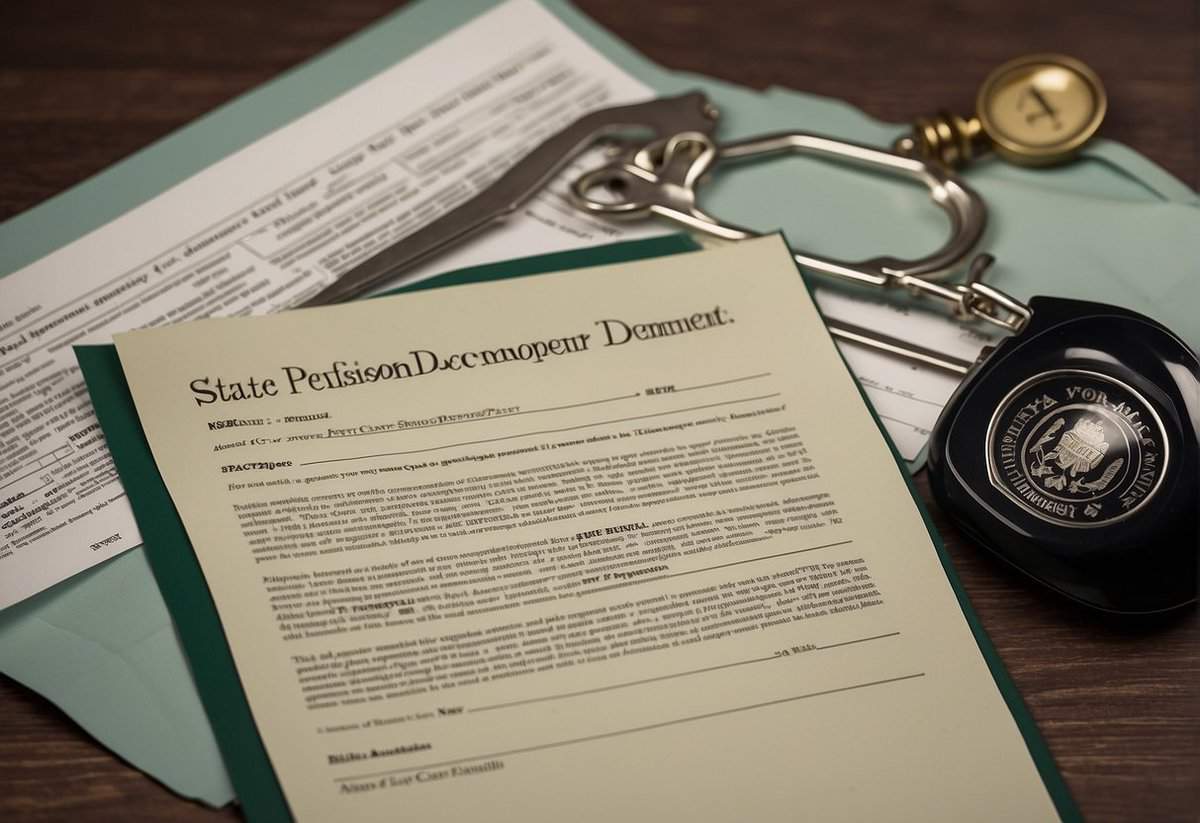Does Your State Pension Change if You Get Married? Understanding Your Benefits
When you tie the knot, there are many financial implications to consider, and one of the questions that might come to mind is whether getting married will affect your state pension. The rules around state pensions can be complex and can vary depending on where you live and your individual circumstances. It’s important to understand that in some systems, such as the UK’s new State Pension, your entitlement is based largely on your own National Insurance record, and being married does not automatically mean you will receive a higher pension. However, your marital status could have an indirect impact, particularly if you’re entitled to certain pension credits or benefits that take household income into account.

Navigating the specifics of how marriage influences your pension can be challenging. For instance, in a divorce, pensions can be subject to legal scrutiny and division between spouses. On the other hand, if a spouse passes away, the surviving partner might be eligible for a portion of their spouse’s pension in some cases. It’s crucial to explore the conditions under which personal life events might alter your pension rights or amount, and to understand any actions you can take to protect or maximize your retirement income.
Key Takeaways
- Your state pension may be impacted by marriage, but it depends on individual circumstances and local laws.
- Changes in marital status, such as marriage or divorce, can influence pension entitlements and benefits.
- Researching and understanding the specific pension rules in your area is important for retirement planning.
Understanding State Pension and Marriage

Navigating the implications of marriage on your state pension can be simpler than you think. It’s vital to understand how your marital status interacts with the state pension system and your national insurance contributions.
What Is State Pension?
The State Pension is a regular payment from the government that you can receive once you reach the state pension age. It’s dependent on your National Insurance contributions (NICs). To qualify for the full new State Pension, you typically need 35 years of contributions. There are two types: the basic State Pension and the new State Pension, which aims to simplify the system for those reaching state pension age on or after 6 April 2016.
Impact of Marriage on State Pension
When you get married or enter into a civil partnership, your State Pension remains based on your individual National Insurance record. In the UK, married couples do not receive a joint pension but two separate payments. This allows both you and your spouse to benefit from your individual contributions, potentially maximizing your retirement benefits. If a divorce occurs, the impact on your pension will depend on several factors, including court orders and individual agreements.
In case you’re uncertain about what you may receive, you can get a State Pension forecast to understand how marriage could affect your situation. Be aware that there are no automatic changes to your pension due to marriage; your entitlements are primarily based on your own contribution record.
Eligibility and Claims

Understanding how marriage affects your state pension is crucial when planning for retirement income. Your eligibility and how you claim may alter slightly after tying the knot, centering primarily around your national insurance record and reaching the qualifying age.
Qualifying for State Pension
If you’re wondering whether you’re eligible for the new State Pension, here are the specifics: you must reach the State Pension age, which is on a sliding scale, with women born on or after 6 April 1953 and men born on or after 6 April 1951 affected differently. To receive the full amount, you need a complete national insurance record with 35 qualifying years. If you’ve fewer than 35 years but at least 10 years, you’ll still receive a portion.
Your marital status doesn’t directly impact your personal State Pension entitlement; each person’s pension is calculated individually based on their national insurance record.
How to Claim State Pension After Marriage
Once you’ve reached retirement age, claiming your State Pension warrants your action, as it’s not automatic. To start the process, you’ll receive a letter from the Department for Work and Pensions (DWP) no later than two months before you reach the qualifying age. If married, both you and your spouse must claim separately.
If you reached or will reach State Pension age on or after 6 April 2016, your new State Pension will be calculated individually, with your marital status only playing a role in benefits entitlement and inheritance of additional State Pension, under certain conditions set by the DWP.
Effects of Personal Life Changes

When you experience significant changes in your personal life, it’s important to understand how these events may affect your state pension entitlements. Changes such as getting remarried, going through a divorce, or losing a partner can have a bearing on the pension you might expect to receive in retirement.
Remarrying and State Pension
If you remarry, your state pension should essentially remain intact because the entitlements are individual. However, if you are widowed and were receiving an additional pension based on your deceased partner’s record, remarrying before reaching State Pension age may affect this component. It’s crucial to update your marital status with the pension service to ensure your records are current.
Divorce and Dissolution Impact
Divorce or dissolution of a civil partnership can influence your state pension in a few ways. If a pension sharing order is issued, your ex-partner may receive a part of your pension or vice versa. It’s important for you to know that any protected payment you have is not shared with your ex-spouse. You should also be aware that if your ex-partner has a pension, you may have a claim to part of it as a beneficiary.
In the Event of a Partner’s Death
Losing a partner can be a distressing time, and it also impacts pensions. If you’re widowed, you may receive some of your deceased partner’s pension. This could include a percentage of their state pension, depending on their National Insurance record. If your spouse or civil partner had a nominated beneficiary for their pension, that named individual would be considered for receiving the pension benefits. Also, if you’re over state pension age and on a low income, you might be able to claim pension credit as a single person.
Supplementary Pension Considerations

When you tie the knot, it can impact your retirement in ways you might not have considered. Here, we’ll touch on how private pensions and assets can interact with changes in your marital status and offer insight into making the most of retirement benefits.
Private Pensions and Investments
Your private pensions, such as a workplace pension scheme, can be a significant part of your retirement portfolio. If you’re married, you can sometimes increase tax efficiency, as income tax breaks for pensions can extend to your spouse. For instance, if you don’t have a workplace pension but your spouse does, you may be able to claim certain deductions based on combined income thresholds. It’s prudent to check with a financial adviser or use a pension calculator to estimate how your private pension might alter with marital status.
With regards to investments, consider how they could complement your private pension. If your investments are set up to be tax-efficient, it may affect your overall retirement income differently after you’re married, due to your possibly changed tax bracket. Again, it’s crucial to assess individual circumstances, perhaps with assistance from a professional.
Maximizing Retirement Benefits
Optimizing your state and workplace pension benefits when married could include understanding the State Second Pension (S2P) or the former SERPS pension. Your combined income can influence your eligibility for certain means-tested benefits, such as housing benefit.
It’s also worth looking into whether you could boost your retirement benefits through family-related credits, like child benefit, which can impact your starting amount for state pension. Grandparents who contribute to childcare might even be entitled to National Insurance credits, which would increase their pension. If there are concerns about being underpaid state pension, which can sometimes occur due to errors, the pension service is available for assistance.
Remember, each couple’s situation is distinct, and rules can vary, so consulting with a financial adviser experienced in retirement planning is beneficial. Experts like Steve Webb, a former pensions minister, have often highlighted the complexities in navigating pension entitlements after marriage.
Frequently Asked Questions

Navigating the implications of marriage on your state pension can be complex. Here’s a straightforward guide to help you understand the basics.
Do married couples each receive their own State pensions?
Yes, married couples are each entitled to their own state pensions. The amount you receive is based on your individual National Insurance contribution records, not your marital status.
Is it necessary to inform the Department for Work and Pensions about my change in marital status?
You should inform the Department for Work and Pensions (DWP) if you get married. Your change in marital status could affect your benefit entitlements, including your state pension.
Could I forfeit my widow’s private pension benefits if I decide to remarry?
Private pensions have their own rules, which can vary. It’s important to check with your pension provider, as remarrying could mean losing eligibility for a widow’s pension.
What is the timeframe for reporting a change in marital status to the Social Security Administration?
You must report a change in marital status to the Social Security Administration as soon as possible. The SSA has set time frames for reporting changes to ensure your records are up to date.
How does marriage impact eligibility for Social Security benefits?
Marriage may affect various Social Security benefits, such as Survivors, Divorced Spouses, and Child’s benefits. It’s important to understand how these could change if you get married.
After how many years of marriage am I entitled to receive a portion of my spouse’s pension benefits?
The duration of marriage required to be entitled to a portion of your spouse’s pension benefits can vary depending on the type of pension and the rules of the specific pension plan.

